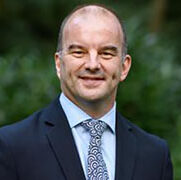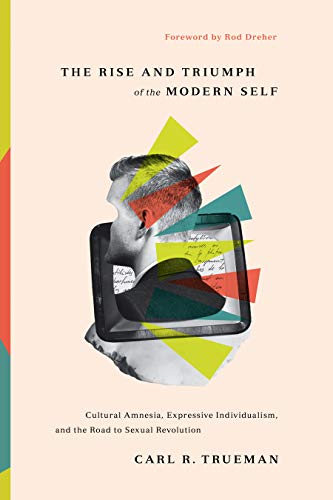An Author Interview from Books At a Glance
An Abridged Transcript–Subscribe for the Full Content
Greetings – I’m Fred Zaspel, and welcome to another Author Interview here at Books At a Glance. We have Dr. Carl Trueman with us again today – he’s been a friend of Books At a Glance from the beginning and has been with us several times. Today we talk about his important new book, The Rise and Triumph of the Modern Self: Cultural Amnesia, Expressive Individualism, and the Road to Sexual Revolution – a major accomplishment.
Carl, welcome, and congratulations on your new book.
Trueman:
Thank you so much, Fred!
Zaspel:
It’s great to see this book come out. I recall when you first mentioned it to me – I think it was just an idea at that point – and I’ve been looking forward to it. Just how long was this in the works?
Trueman:
2015 was the starting point of the book. It took 4.5 years to put together.
Zaspel:
First, just in broad perspective to get us started, tell us what your book is all about.
Trueman:
As the title suggests, the book is about the sexual revolution including the likes of the LGBTQ+ movement. But, what I wish to highlight in this book is that the more recent modern changes are the result of larger societal changes from the last three to four hundred years. These things did not just happen out of nowhere.
Zaspel:
Okay, your title – what do you mean by “the modern self,” and just how has it “triumphed” in our contemporary society?
Trueman:
The term “the modern self” refers to how we understand our identity and how we find fulfillment. How we understand ourselves and our fulfillment is at the real root of why more symptomatic changes like the sexual revolution have taken place. I want to get at the more foundational change that influences what we see in culture.
Zaspel:
How is this understanding of the self basic to the sexual revolution?
Trueman:
The changed understanding of the basic self has essentially been psychologized, at least in brief summary form. Obviously, I have written over 400 pages explaining much more. But the primary point is that we in the west have made a shift in how we understand selfhood that focuses on the psychological inner space within all of use. This has led to some interesting shifts in other areas. For example, Freud identified sex as key to our identity, not as primarily an activity. It is not just an act, but a major primary driving force shaping who we are. And this kind of psychological understanding drove the various strands of the cultural sexual revolution, such as that of radical feminism and transgenderism.
Zaspel:
You note what a seismic shift this is from previous generations who grounded virtues and values in considerations outside the self, in transcendent realities. That’s an important observation – explain that for us.
Trueman:
The shift has changed people’s perspective from more enchanted and transcendent realities to more self-focused and material realities. For example, most people today do not walk through a forest at night in fear of being eaten by a goblin whereas in the Middle Ages, that kind of fear of the tangible supernatural was real. And even in my grandfather’s generation, the satisfaction that came from work was more of an external thing—it helped him provide for his family. Today, to take for me for example, I enjoy teaching because it gives me a kind of psychological buzz from doing it. Worship has undergone the same kind of change; it is now often more about God meeting our emotional needs instead of getting to know more about God and bringing our lives into conformity with his Word.
Zaspel:
This change has affected people’s understanding of themselves in terms of the image of God. What more would you say, especially related to sex?
Trueman:
Sex has become about one’s own personal satisfaction instead of serving another as the Bible teaches it. That is the part of the ground for the legitimation of movements like homosexuality.
Zaspel:
You mention the roles of Romanticism and figures such as Rousseau, Marx, Darwin, Freud, and Marcuse in all this. Can you just highlight this for us in a brief summary kind of way?
Trueman:
Rosseau helps us understand the role of society in changing us, and he wants us to get back to what is within us that is not corrupted by society. Romanticism picked up this idea. Marx, Nietzsche, Darwin, etc., all chip away at human nature to help people forge their own individual path away from societal influences. Freud and Marcuse identify sex as key to all of this. The new left builds upon these ideas to fuel the political transformation from the change in the idea of self.
Zaspel
Once again, at the risk of being redundant but just to put a point on all this, just in brief, how has all this blossomed in our day? Bring all this to 2020. How have self and culture been “reimagined” in our culture?
Trueman:
Transgenderism is a perfect example of how people’s feelings define their idea of self. Gay marriage has the same effect – marriage is for personal psychological satisfaction. The Church cannot be complicit in these ideas and that means, for example, we cannot be complicit in accepting no-fault divorce which has a similar rationale to gay marriage , seeing marriage as just a sentimental bond between two people, one which loses significance when it ceases to make them happy. Our therapeutic culture feeds the same psychological version of our self. This is also why people insist on linguistic changes of pronouns. People want others to recognize their self-identification and not seek to oppress them by continuing to speak what may be an actual reality which contradicts their desires.
Zaspel:
What is the contribution you hope to make with this book? And who is the audience you have primarily in mind?
Trueman:
My primary contribution is to help readers understand that the sexual revolution is based on a fundamentally transformed understanding of self. Although this point is depressing to some extent, it can help us realize the larger issues that we have to address rather than focusing simply on, for example, getting certain legal changes made. I certainly want to help pastors in this way.
Zaspel:
How does this book help me teach the doctrine of man?
Trueman:
This book highlights the importance of this doctrine and how these issues transform communities in which we live. This book should help us think more about how ecclesiology affects our doctrine of man. Our community seriously influences us. Communities forge identities, for better or worse. That is why the LGBT movement is so successful — because it is a community. Churches ought to provide a better example of a better community.
Zaspel:
Before we sign off, give us an overview of your book and how you approach your topic.
Trueman:
I seek to introduce the terms in a way that is accessible, I trace the history we discussed, I look at the present day highlighting the issues we mentioned (therapeutic aspects of counseling that affects us as mentioned), how these issues have come to triumph in our society, and then I consider how the LGBTQ movement formed and transformed the West. In the final chapter, I provide a way forward for the Church, especially to recover the strength of a community.
Zaspel:
We’re talking to Dr. Carl Trueman about his important and really excellent new book, The Rise and Triumph of the Modern Self: Cultural Amnesia, Expressive Individualism, and the Road to Sexual Revolution. Buy a copy and understand the culture you live in.
Carl, thanks for talking to us today.
Trueman:
Thanks for having me!

